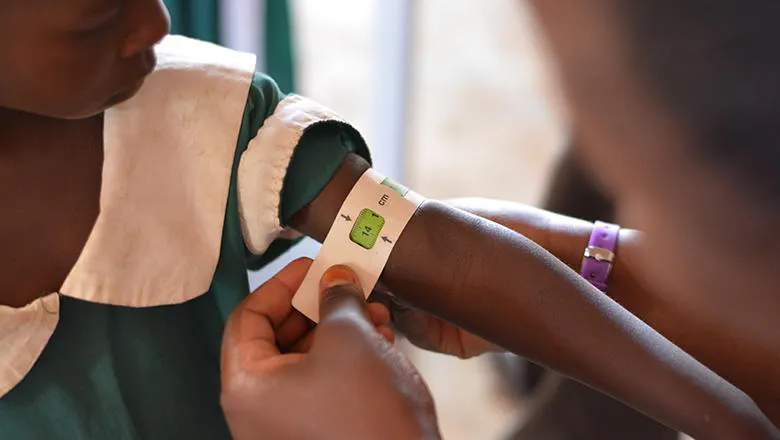The reality is that very little of the research into health systems, policy and delivery of health interventions focuses on low- and middle-income countries.
Harriet Boulding, Saba Hinrichs-Krapels and Ahmed Seedat
13 August 2019
Strengthening health systems in low-income countries requires more than evidence
Harriet Boulding, Saba Hinrichs-Krapels and Ahmed Seedat
HARRIET BOULDING, SABA HINRICHS-KRAPELS AND AHMED SEEDAT: Whilst hard data is important, for success in global health you also need intuition, relationships, leadership and most importantly values.

This piece was originally written for the Policy Institute's new Policy Review publication, which features essay contributions on a range of different issues by the institute’s researchers and Visiting Faculty.
Read the full collection of essays.
It is widely understood that health policy, more than any other public policy area, is based on the best available evidence. But what if that evidence just isn’t there? In that case, certain groups may lose out – usually people from poorer communities. The reality is that very little of the research into health systems, policy and delivery of health interventions focuses on low- and middle-income countries (LMICs), a problem compounded by the many contexts in which there is an urgent need for intervention – where, put simply, inaction can be fatal.
For example, the 2014 Ebola outbreak in West Africa was an emergent situation where local and international health workers, policymakers, diplomats and researchers worked together to mobilise a rapid, innovative response. So what happens in a context like this, in which there is an urgent need but very little evidence to support action? What if there is compelling evidence in a high-income setting, but the context for your current work is so different that you cannot say with any degree of certainty that it will be successful in your current setting? These scenarios are all too familiar to those who work in global health and on strengthening health systems in LMICs.
Health system strengthening is loosely defined as “any array of initiatives and strategies that improve one or more of the functions of the system”, though in reality understandings of what it means to do this work vary considerably. Some have even questioned whether it is possible to have a coherent health systems strengthening agenda where a lack of evidence is a factor in developing policies and practices.
Yet we know from experience that, while having strong evidence is important, it is only part of a bigger picture. If you ask researchers and practitioners to reflect on the factors for success in global health, you will often hear intuition, relationships, leadership and, crucially, values, mentioned alongside the evidence base.
Speak with practitioners in some areas, and you may encounter an intuitive “have a go” attitude that is seemingly quite at odds with an evidence-based approach. But in reality, there are some non-pharmaceutical health interventions where trying it out and seeing what happens is certainly not the worst thing you can do. This holds true in both high- and low-income contexts, where, regardless of setting, many have argued that it is simply not necessary to run a randomised controlled trial before trying out a community health intervention in the way that one would for a new drug. For example, interventions designed to provide accessible information about healthier eating need not be held to the same standard of initial trialling that is expected of pharmaceuticals.
In our own work on strengthening global health systems, we regularly find ourselves in situations where we are, to some extent, in experimentation mode. We conduct policy analysis in low-income settings that addresses a variety of issues, such as increasing access to high-quality mental health care and community-based interventions to tackle cardiovascular disease. Each of these projects involves an intervention that has not been tried previously in these contexts.
This work relies on developing a deep contextual understanding that may not be available from the evidence alone. And in order for an intervention to be successful, it requires buy-in from all stakeholders who are in one way or another responsible for making it work. It is important to seek input not only from the policymakers responsible for allowing an intervention to proceed, but also from the health workers, patients, administrators and industry partners who all have a role to play in determining outcomes.
If you ask researchers and practitioners to reflect on the factors for success in global health, you will often hear intuition, relationships, leadership and, crucially, values, mentioned alongside the evidence base.
Harriet Boulding, Saba Hinrichs-Krapels and Ahmed Seedat
Doing this well requires a commitment to inclusivity, willingness to learn and adapt, fostering leadership and creative thinking that give an intervention the best chance of success. It also entails establishing a set of shared values with partners in low-income countries, ensuring that approaches to health system strengthening are responsive to local priorities. When doing this complex and vital work, values can be as important as evidence in improving outcomes.
Without a common set of values, no initiative can be effective or sustainable. Given the diverse nature of health system strengthening, these values appear in many forms, but there is a common and essential human element that is crucial to determining success or failure.
Health services are provided and used by a range of different people, who are in turn influenced by socio-political forces, communities and relationships. This is why any evidence that is deployed or produced needs to go hand in hand with a sophisticated understanding of people and context.
Transforming health systems relies on understanding the role of these people in influencing outcomes, and in ensuring that they have the capacity to do so. Achieving that requires not only an evidence-based approach, but a values-based one.
Dr Harriet Boulding is a Research Associate, Dr Saba Hinrichs-Krapels is a Senior Research Fellow and Dr Ahmed Seedat is a Policy Analyst, at the Policy Institute, King’s College London.
